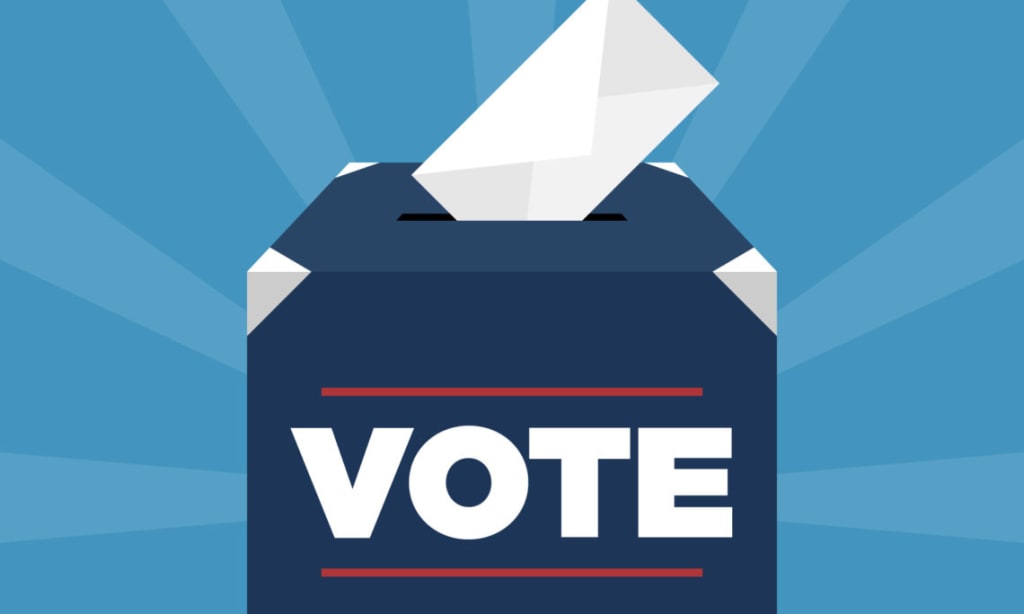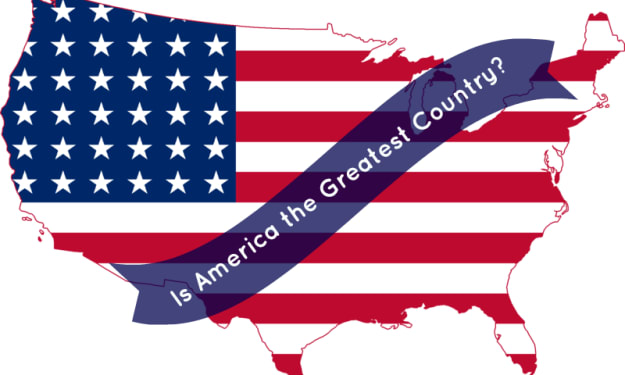Strengths and Weaknesses of Different voting systems
How do they work and which ones give you the greatest choice?

Over the years Democracy has taken many shapes and forms. It has invaded Europe, The Americas, Africa, Asia, and Oceana. Yet the way each democracy dose voting is extremely different. Instead of taking a really deep look we are going to take a look at all the different ways people are currently voting, and how it works. After I will give my personal grade of how good it is and why I feel that way. Bear in mind I go by a few metrics. First is how does it treats third parties? Second how effective has it been to keep dictators from gaming it. Third how many people on average actually participate this way and don’t stay home. And finally does it allow for real change in party politics AKA turn over. Mind you I wont touch upon all these metrics but I will explain my ranking out of five stars as to the big reasons it goes there due to some metrics being obvious in the descriptions and explanations of the pros and cons list. At the end I will give you my personal preference as to the voting system I love the most and as to why I suggest it for more modern democracies as well as emerging democracies around the world.
First Past the Post:
AKA by its rapper name as Winner Take all!

First Past the post is probably as old as the idea of representative government and democracy itself. It was around in Greece, Rome, and is even used to choose the Pope. Currently it is the most well-known system to vote by. Not necessarily because it is the best, but because it is the oldest and usually the first system put into place by a fledgling government as a placeholder to form a government and to elect government officials. The way it works is say you have a candidate run for office against other candidates the person who gets the most votes wins usually known as the 50 plus one rule but in a nutshell, whoever gets the highest percentage of the ballots cast for them wins.
The pros it's easy for most people to understand you circle a name or check a box next to the person and boom it's done, also results are pretty clear to understand you got the win for you or you didn’t too bad try in a few years.
The cons are pretty easily to understand as well, mathematically over years and years of this voting system being implemented you can easily get a party system that is only two parties. This means it forces out new ideas opinions and thoughts as well as funnels voters into voting for the lesser of two evils, and chokes out other smaller parties that while may be viable never have a chance to grow because they are always seen as the “protest vote” or the “spoiler” which decreases enthusiasm from that party slowly causing it to wither and die due to membership decline or membership stagnation over time.
My personal rating for this is 2 stars biggest reason is for fledgling governments it’s a good starting point that should be upgraded to another more inclusive voting system once people get used to democracy later on. Yet it doesn’t rank higher than others I will have on the list because States that use it in established democracies tend to have a wonky and destabilizing two party system that allows for third party voter suppression usually unintentionally yet recently in some countries intentionally.
Star Voting:
AKA: the way people rate on Yelp

In its most simplistic terms STAR means Score then Automatic Run off the way it works is kind of like picking your favorite restaurants but the highest two picked by everyone then has an automatic run off using the system with the highest score winning in the end. It's not the easiest to understand but it’s not the hardest. Basically, you have a zero through five ranking system for all candidates running for that office you choose a number to rank them most likely based on how you feel about them and policies those candidates represent then you submit your ballot. At the end of the night the two highest ranked candidates run off against each other and the candidate with the highest combined rank wins the election. It’s an effective way of voting with established democracies even though no major country has adopted it fully, but Parts of Tennessee and the state of Oregon have toyed with it in the past to some success. Even though with Fledgling democracies and democracies that haven’t had a huge history of 4th and 5th party participation could find it daunting, especially without advanced technological infrastructure to be able to tally the votes effectively.
Pros for this is there is really no spoiler effect or a protest vote you simply rank a person based on how you feel they represent you zero being the lowest and five being the highest. You can have multiple candidates run from different parties and differing viewpoints, and it makes voter intimidation and suppression harder for established parties due to the subjectiveness.
The cons are its hard sometimes for people to vote in this manner because they aren’t patent and maybe will only fill in two or three people leaving the rest blank and, in this way, giving other viable candidates zeros by default. Another con is it will take a while to tally the run off and may not be apparent who the winner is the same night as election night especially if its very close and the voting depending on where you are from may have to be done by hand counting and can easily confuse election day counters especially when the margin may be one or two points.
I give Star 4 stars due to it getting rid of the spoiler effect and multi-party friendliness. However, it doesn’t get my elusive 5 stars because of the recounting issues that can be had if you don’t have the resources that can handle it.
Proportional Representation:
AKA: Party Percentage grab :

As Samuel L Jackson says in Jurassic Park “hold onto your butts” because this can be a bit to understand. In this method you are voting by what party represents you best. That party wins then the majority of seats given in that election for said offices in a legislative body for that area are awarded to the most followed by the second most party followed by the third and so on. In some cases, you can choose who you would like to see be on top by voting further for specific candidates but some countries allow their political parties to decide for you. A great deal of countries has this method and it can be useful for newer countries to do this especially ethnically diverse or religiously diverse new democracies because it gives everyone some representation. In there national or local or regional governing body. And typically, this is written in to the constitution or other founding documents of a democracy so it can’t be changed easily or overridden by the court system. This is not recommended to countries who are stable and established and or are resistant to change of there forming documents because this will need a formal change of how seats are given out and redistricting is done as well as make up of the legislature.
Pros are everyone gets something so they at least have a voice in there national, local, and regional assembly. Currently a lot of established countries allow for this in their constitutions and have based an entire governmental body around this practice. Also no one group can dominate over others because this method ensures voting pluralities in most cases meaning coalitions need to be formed in order to run government effectively which brings balanced ideas to the table while creating legislation.
Cons are this is not at all for an established well-functioning democracy whose people are resistant to major change. Enacting this could be a control alt delete on how the government works causing massive instability. If a current stable government needs something to make it a fairer democracy, I suggest Star or Ranked Choice voting as an alternative plug and play solution.
I give this system 3 and a half stars simply because there are too many variations to cover and its used to great effect by most governments in the western world that popped up after the first and second world wars. But its not a catch all you need to literally write it into your constitution for it to be voter friendly and if your already established and have a stable government you’re basically shooting yourself in the foot when Star or RCV (ranked choice voting) is a better plug and play option to giving your people more voting power. If you’re creating a democracy from scratch and having a difficult time getting everyone on board because they don’t want one group to have too much power over the other and rather have coalition governments where two or more blocks need to play nice to form government then this one will get you there, it's not pretty but it’s better than not having a national democracy.
The next system is called Majoritarian system:
AKA Ranked Choice Vote, Aka Instant runoff voting :

Both Instant Runoff and Ranked choice are used interchangeably but typically differ depending on the governmental system they are used to decide representatives for, but basically, they will be known by there acronyms as RCV or IRV. In a nutshell a majoritarian system is this you run as many candidates from as many parties as you wish if one gets over 50% or 60% depending on constitutionally mandated threshold for majority then you are good election over! If the top candidate doesn’t get the prerequisite amount then what happens after that is this you find out who had the fewest eliminate and redistribute their votes to the others this keeps going until one person gets the pre requisite amount needed for Majority, then celebration time! Sometimes this can be mixed with other things such as multi member districting or really whatever that State or nation wants. It's really handy!
Pro for this its versatile and it doesn’t take long to fill out the ballot you pick your preferred then rank from one to however many are in the race. Takes only a few minutes on average and best yet it gets rid of the spoiler effect like star did best yet recounting can be done by hand pretty quick as well as elimination it really doesn’t take counting as much as it does sorting the piles, and getting the ballot distributed, and you can do it physically as a instant runoff as opposed to just going for two candidates and adding up there scores which for older vote counters can be harder than just making piles eliminating those piles until 60% threshold or 50% threshold is reached.
Cons are really few again maybe not for a brand-new democracy that hasn’t the resources yet to deal with this system that’s when proportional or a temporary first past post may come in handier and then a switch to this or star after the country is stabilized to allow further democratization of the vote for its citizens. Other than that, it’s a great option for a plug in to increase democratization.
I give it 4 and a half to five depending on additions like multi member districts but all in all can fix a lot of the countries that have entrenched and tribalistic two party systems by just changing from First past to RCV or IRV pretty easily. The only reason I don’t give it more is because its hard to sell to countries that have RCV and its not practical all the time in every nation especially proportional Rep nation where you don’t need a run of just need to know what party is most wanted.
In conclusion where I live in the United states, I think it would be easier to get Star or RCV done so as to allow for a multi-party system that will allow for more voices to be heard in government. For other nations like Canada or the UK that have winner take all it will strengthen their minor parties and give better legitimacy to the Labor and conservative parties. The only drawback in Canada is that the FLQ will be able to gain more traction in Quebec thus could lead to the province exiting from Canada into a new country all together. In the United States however I personally believe that it will encourage new people to run and people who haven’t voted or have a spotty voting record to vote in record numbers without needing to pass a mandatory voter bill forward like in Australia. Bear In mind this is not a comprehensive review it is merely a quick look at a few voting systems and my taste is like yours subjective.
If you liked this article check out my page a read my other articles. If you really want to help me out and make this my permanent job writing content for You my readers, consider leaving a tip of any amount and sharing this article and my other articles to your friends and family on your social media pages it would really help me grow and focus more time on writing and researching rather than a 9 to 5.
About the Creator
Andrew Legnani
Story Writer I write both fiction and nonfiction. Interested in politics and play around with the idea of corruption in my fiction, fascinated with the human condition.






Comments
There are no comments for this story
Be the first to respond and start the conversation.